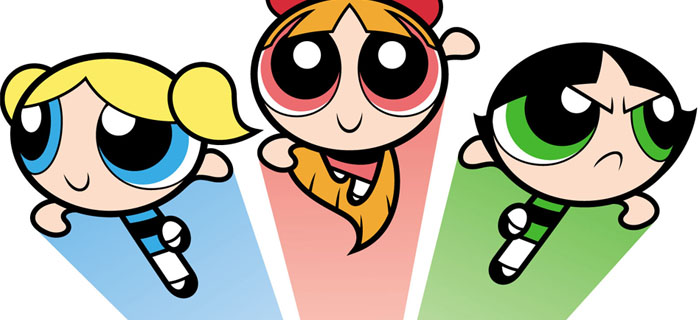Kinderen en jongeren zijn continu in het nieuws. De meest lezenswaardige/opvallende berichten uit andere bronnen verzamel ik wekelijks in een post met ‘kortjes’ – oneliners met een linkje naar het oorspronkelijke artikel. KLIK & LEES:
Cartoon Network is reviving the animated Powerpuff Girls franchise for a new series slated for a 2016 debut including a licensing program in all regions; the franchise has earned more than $2.5 billion in retail sales since its debut (THR)
Stars of the Harry Potter franchise hit the red carpet at the much-anticipated expansion of Universal Orlando’s Wizarding World of Harry Potter, ahead of the opening of the new attraction on July 8 (Reuters)
Leave it to Lego to use the word ‘fusion’ correctly; the construction-toy company’s new Lego Fusion analog-to-digital game sets are a true blend of real-world Lego building and tablet-app play (Mashable)
With restrictions on TV marketing of products aimed at kids that are both voluntary and forced by social pressures, more importance is being placed on how cereals are marketed in the store, but General Mills calls kid marketing research from Cornell University ‘absurd’ (RetailWire)
Having Ronald McDonald go sledding in a shopping mall in Malaysia is about as random as it can get, but it’s a move that’s part of larger global effort to have Ronald appeal to a broader audience than kids, including adults and families (Ad Age)
Uncomfortable family photos go viral, mustaches the size of your face are trendy, being an introvert gives you more to talk about than being an extrovert; awkward is the new standard of social prowess and replaced what used to be a mentality of calm, cool and collected (Elite Daily)
At some point in the last few years, the hipster changed: “The hipster died the minute we called him a hipster, the word no longer had the same meaning” (The Guardian)
Facebook’s latest standalone app, Slingshot, has officially launched; the app, the company’s latest (and likely last) effort to create a true Snapchat competitor, allows users to send disappearing photo and video messages, but Facebook isn’t framing Slingshot as a messaging app (Mashable)
A new app called Yo, which is available in the Apple and Google Play stores, allows users to connect and communicate using the word ‘yo’, and that’s it (USA Today)
While Google says it doesn’t allow advertisements on its student products, privacy experts are questioning whether the online activity of teenagers is being analysed for future use (ABC)
Nivea Sun won the Mobile Grand Prix at Cannes Lions; a strip could be torn out the magazine ad and then be put onto kids’ wrists — a special app, Nivea Protégé, was linked to the bracelet and let you set a distance that your child could wander before an alarm was triggered (Ad Age)
Willagirl pulled its skin care line off the shelves at more than 300 stores nationwide; its current strategy is to recruit its teen and tween customers to sell directly to their friends, and friends of friends (The Wall Street Journal)
Creopop’s unusual photo-polymer 3D drawing pen uses neither heat nor plastics to create 3D objects that can stand on their own; instead, the pen employs a chemical reaction to harden its ‘ink’, which is actually a gel-like polymer (Mashable)
Millennials shy away from voice mail; having grown up in a texting-friendly culture, with unmediated cellphone access to their friends, they have had little formative experience leaving spoken or relayed messages over the phone (The New York Times)
During Amazon’s unveiling of Fire, CEO Jeff Bezos wowed his Seattle audience of app developers, customers and media with the slew of features on his company’s new smartphone — the phone is, above all, an enhanced shopping tool, not a realistic shot at the smartphone market (Ad Age)
Music is powerful because it is content, and it stimulates social interaction and drives loyalty; disruptive streaming technologies and the onset of multi-screen user behavior have forced drastic shifts in the use of music as a marketing tool (Mashable)
Today, we are moving more and more towards a hippy way of consuming music; we, Gen Y members, generally do not pay for CDs on the shelf because we want our entire music library available on our phone — we want it all and we want it now (Cool Brands)
Walt Disney expects global retail sales from its 10-month-old Infinity video game to reach $1 billion even as rivals also combine physical toys with video games (Reuters)
The Dr. Seuss at Sea cruise embraces children literature for a fun vacation this summer; it brings the American writer’s books and poems to life, showing children that a world of cats in hats, green eggs and greener Grinches can exist beyond the printed page (Trend Hunter)
Registries aren’t just for weddings or baby showers anymore: Target is launching an online college registry service just in time for the deluge of graduation parties this summer (Racked)
Hello Flo is back with a second spot for the period subscription service and its starter kit; while last year’s tween was entrepreneurial, this one gets crafty when Flo just doesn’t seem to want to show — our heroine takes her period into her own hands with a (not -so) white lie (Creativity)
[youtube http://www.youtube.com/watch?v=NEcZmT0fiNM]Children see the world differently; they might make something unique, even if they lack technical chops — Ramaa Mosley believes this utterly, and opened a production company, Adolescent, to develop and represent directors 13 to 25 for ads and music videos (Adweek)
Eén generatie geleden leken jongeren nog ongeneeslijk verslaafd aan televisie, maar inmiddels hebben ze nagenoeg alle interesse in het medium verloren; adverteerders, zijn wanhopig op zoek naar een alternatiefvoor de traditionele tv-spot van 30 seconden (Express.be)
Wat werkt wel en wat werkt niet in commercials gericht op kinderen? Vooral een commercial met een mix van realistische beelden en animatie spreekt kinderen aan (YoungWorks; pdf)
Ook al staat de televisie slechts aan op de achtergrond, toch kan dit een negatief effect hebben op de ontwikkeling van hele jonge kinderen, doordat ouders minder tegen hun kind praten als de televisie aanstaat (Kijkwijzer)
Het gebruik van sociale netwerksites zorgt bij zowel jongens als meisjes voor een toename van ontevredenheid over het eigen lichaam en de wens om cosmetische chirurgie te ondergaan, blijkt uit onderzoek waar Dian de Vries op promoveert aan de UvA (NJi)
De jeugd van tegenwoordig lijkt in veel opzichten op de jeugd uit de Gouden Eeuw; ook toen maakten jongeren zich druk om mode en vertoonden zij zo nu en dan losbandig en opstandig gedrag, blijkt uit het boek Seks, drugs en rock ’n roll in de Gouden Eeuw van Benjamin Roberts (AD)
De veertigste editie van de EO-Jongerendag had een voornamelijk feestelijk karakter; bijna 27.000 jongeren uit het hele land reisden af naar Arnhem om en masse hun religie uit te dragen door middel van gebeden en christelijke muziek (NU.nl)
Het fenomeen dorpskermis verliest op veel fronten haar sterke positie — het zijn vooral de jongeren die het laten afweten: “Ze gaan liever naar een café om iets te drinken of willen hun mobiele telefoon up to date houden” (Brabants Dagblad)
Kinderen die bang zijn aangelegd, hebben gemiddeld genomen een groter ‘angstcentrum’ in hun brein, zo blijkt uit nieuw onderzoek van de Universiteit van Stanford (NU.nl)
Als mensen in hun jeugd een muzikale opleiding hebben gevolgd, functioneert hun brein beter bij zogenoemde uitvoerende taken, zo blijkt uit nieuw wetenschappelijk onderzoek (NU.nl)
Unilever combineert Robijnwasmiddel met de geur van Zwitsal, op veler verzoek van fans via social media (Adformatie)

